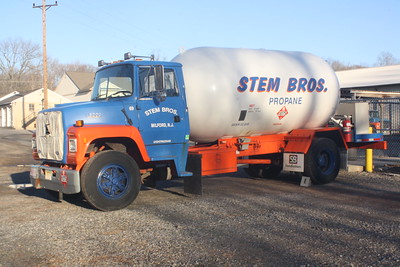
Propane is a highly explosive gas. It is one of the most common gases used in homes and industries and has a wide range of uses. Propane is also a common fuel for barbecues, patio heaters, and other outdoor appliances. When propane is released into the air, it mixes with oxygen and can create an explosive mixture. Propane is also flammable, so it can easily ignite and cause an explosion. Propane explosions are often large and can cause extensive damage to property and people.
Chemical Composition and Energy Release
Propane (C3H8) is a simple hydrocarbon with three carbon atoms and eight hydrogen atoms. This molecular structure enables it to release a significant amount of energy when ignited. When propane burns in the presence of oxygen, it undergoes a rapid exothermic reaction, releasing heat, carbon dioxide, and water vapor. The amount of energy released by burning propane is high, making it an efficient fuel but also contributing to its explosive potential.
Volatility and Explosive Range
One of the key factors that make propane potentially explosive is its volatility. Propane is stored as a liquid in pressurized tanks but easily vaporizes into a gas at normal atmospheric pressure and temperatures. This gas can mix with air and form a flammable mixture. The explosive range of propane is between approximately 2.1% and 9.5% propane in air. Within this range, if there is an ignition source, the propane-air mixture can ignite and potentially cause an explosion.
Ignition and Combustion
For propane to explode, there must be an ignition source. This could be a spark, a flame, or even a hot surface. The ignition temperature of propane is around 920°F (500°C). Once ignited, if the propane is within its explosive range in air, it can combust rapidly, creating a powerful explosion.
The factor that comes into play how how flammable the gas is the ratio of propane and atmospheric air. It has been reported that between 2.15 and 9.6% propane/air mixture is needed for propane to combust. Incomplete combustion produces CO gas, this happens when there is a lower or higher mixture of air/propane during combustion.
The octane level of propane which is between 104-112 makes it ideal to power propane-powered forklifts, generators, and other vehicles. The higher the octane level of the gas, the more efficient it is for fuel of IC engines.
Gasoline is more explosive than propane that is because gasoline ignites at temperatures 80-300 degrees, while propane is 920-1020 degrees F. When propane is ignited, the temperature can reach up to 3,595 F.
The flammability of gas depends on the mixture of air or oxygen in the correct level or proportions. Other flammable gases aside from propane are: silane (SiH4), butane C4H10), ammonia(NH3), hydrogen (H2), methane (CH4), ethylene (C2H4), acetylene (C2H2), chlorine trifluoride (ClF3) and ethane (C2H6). The applications for these gases are in industrial use.
The flammability of propane
- Chemical Composition and Properties: Propane is a hydrocarbon gas (C3H8) that is highly flammable. Its molecular structure allows it to release a large amount of energy when ignited.
- Volatility: Propane is volatile, meaning it easily vaporizes at normal temperatures and pressures, forming a flammable mixture with air.
- Energy Release: When propane burns, it combines with oxygen, releasing energy in the form of heat and light, which can be explosive under the right conditions.
Conditions Required for Propane to Become Explosive
- Fuel-Air Mixture: Propane becomes explosive when it is mixed with air in the right proportions. The explosive range is typically between 2.1% and 9.5% propane in air.
- Ignition Source: Propane needs an ignition source to explode. This can be a spark, open flame, or even a hot surface. The ignition temperature of propane is approximately 920°F (500°C).
- Confined Spaces: In confined spaces, such as a room or a closed storage area, propane gas can accumulate, increasing the risk of an explosion if an ignition source is present.
- Oxygen Availability: Sufficient oxygen is necessary for propane to burn and explode. In closed environments where oxygen is limited, the risk might be reduced, but not eliminated.
Case Studies of Propane-Related Accidents
- Residential Explosions: Incidents in residential areas often occur due to leaking propane tanks or faulty propane appliances. These leaks can fill an enclosed space with gas, which ignites from a small spark, causing an explosion.
- Industrial Accidents: There have been cases where industrial facilities using propane for various processes have experienced explosions due to leaks combined with improper ventilation and the presence of ignition sources.
- natural Transportation Incidents: Propane transportation accidents can occur with tanker trucks or railcars. For example, a vehicular accident that breaches a propane tank can lead to a significant explosion if an ignition source is present.
- Example Incident: A notable example is the 2013 propane explosion in Tavares, Florida, at the Blue Rhino propane plant. The accident, caused by a combination of equipment failure and human error, resulted in multiple explosions, injuries, and extensive property damage.
What temp does propane explode?
Propane is a gas at room temperature and pressure. It is odorless, colorless, and non-toxic. Propane is used in a variety of applications, including grilling, heating, and as a fuel for vehicles. Propane is also a popular choice for camping and RVing because it is easy to store and transport.
Propane is a gas at room temperature and pressure, and it turns into a liquid when compressed. When propane is heated to about 920-1,020 degrees Fahrenheit, propane can explode without source of ignition. When propane is exposed to this temperature, it should be treated with extreme caution.
-157 degrees Fahrenheit is this temperature is the flash point of propane.
The flash point is the temperature at which the burning propane will continue to burn. When propane is heated to its flash point, it can cause a explosion. Propane’s flash point is -157 degrees Fahrenheit. If the temperature of propane drops below this, the gas extinguishes itself. Propane is used in many different applications, including grilling, heating, and cooking. It is important to be aware of the dangers of propane and to take precautions to prevent an explosion.
Propane is heavier than air, so it will sink to the ground in the event of an explosion.
Propane is heavier than air, so it will sink to the ground in the event of an explosion. The temperature at which propane will explode is around 120 degrees Fahrenheit. At this temperature, propane will vaporize and become highly explosive. When propane vaporizes, it expands rapidly and can cause a very powerful explosion.
This makes it more likely for an explosion to occur in an enclosed space. If this gas is confined in an enclosed space, it can build up to a point where it becomes explosive. When the temperature inside an enclosed space reaches 120F, the propane will ignite itself.
Is propane more explosive than gasoline?
It is often stored in pressurized tanks and is commonly used as an alternative to gasoline. But is propane more explosive than gasoline?
In general, propane is considered to be less explosive than gasoline. This is because propane has a higher flash point, which is the minimum temperature at which a liquid fuel will ignite. This means that propane requires a higher temperature to ignite than gasoline, making it less likely to ignite accidentally.
However, this does not mean that propane is not explosive at all. In fact, propane can be quite explosive under certain conditions. For example, if propane is leaking from a pressurized tank and comes into contact with a spark or open flame, it can ignite and cause an explosion. This is why it is important to handle and store propane safely to prevent accidents.
Propane explosions can be particularly dangerous because propane is heavier than air and can collect in low-lying areas. This means that if a propane explosion occurs, the gas can quickly spread and potentially cause a larger explosion. Additionally, propane is colorless and odorless, making it difficult to detect a leak without a specialized detector.
So, while propane is generally considered to be less explosive than gasoline, it is still important to handle and store it safely to prevent accidents. This includes properly maintaining propane tanks and equipment, regularly checking for leaks, and avoiding open flames or other sources of ignition near propane tanks.
In summary, propane is less explosive than gasoline because it has a higher flash point. However, this does not mean that propane is not explosive at all. It is important to handle and store propane safely to prevent accidents and keep yourself and others safe.
Comparing the Explosive of the Three Commonly Used Fuel
| Characteristic | Gasoline | Propane | Natural Gas (Mainly Methane) |
|---|---|---|---|
| Chemical Composition | Complex mixture of hydrocarbons, primarily C7 to C10 | C3H8 (propane) | CH4 (methane) predominantly, with other hydrocarbons |
| Physical State at Room Temperature | Liquid | Gas (stored as a liquid under pressure) | Gas |
| Boiling Point | -40 to 180 °C (-40 to 356 °F) | -42 °C (-44 °F) | -162 °C (-259.6 °F) |
| Explosive Range in Air | 1.4% to 7.6% | 2.1% to 9.5% | 5% to 15% |
| Ignition Temperature | Around 232 to 280 °C (450 to 536 °F) | Around 470 to 510 °C (878 to 950 °F) | Around 537 to 645 °C (1000 to 1200 °F) |
| Energy Content | Higher energy content per unit volume | Lower energy content per unit volume than gasoline | Lower energy content per unit volume than propane |
| Common Uses | Fuel for internal combustion engines | Heating, cooking, fuel for vehicles and industrial use | Heating, cooking, electricity generation, industrial use |
| Safety Considerations | Highly flammable, vaporizes quickly at room temperature | Needs to be kept in pressurized containers, highly flammable | Lighter than air, can accumulate at high points, flammable |
Ignition temperature of propane
One important characteristic of propane is its ignition temperature, which is the minimum temperature at which it will ignite.
The atmospheric propane ignition temperature is between 920 and 1020 degrees Fahrenheit. This means that propane will only ignite at temperatures above 920 degrees Fahrenheit, and it will not ignite at lower temperatures. This is important because it means that propane is less likely to ignite accidentally than other fuels with lower ignition temperatures.
However, it is important to note that the atmospheric propane ignition temperature is only relevant under certain conditions. For example, if propane is leaking from a pressurized tank and comes into contact with a spark or open flame, it can ignite and cause an explosion even if the temperature is below 920 degrees Fahrenheit.
Additionally, the atmospheric propane ignition temperature can vary depending on the pressure and concentration of propane in the air. For example, if propane is highly concentrated in a confined space, it can ignite at lower temperatures than it would in open air. This is why it is important to handle and store propane safely to prevent accidents.
Maximum flame temperature of propane
The maximum flame temperature of propane is between 3,600 and 3,800 degrees Fahrenheit. This is significantly higher than the flame temperature of other common fuels such as gasoline or natural gas, which have maximum flame temperatures of around 1,500 to 1,600 degrees Fahrenheit.
The high flame temperature of propane makes it an efficient and effective fuel for many applications. For example, propane can be used in gas grills and outdoor heaters to generate intense heat for cooking or warming. It can also be used in industrial processes that require high temperatures, such as welding or metal forging.
However, the high flame temperature of propane also means that it can be dangerous if not handled properly. Propane flames can cause severe burns if they come into contact with skin, and they can also ignite flammable materials or cause structural damage if not properly contained. This is why it is important to handle and store propane safely and to use it only in approved appliances and equipment.
In summary, the maximum flame temperature of propane is between 3,600 and 3,800 degrees Fahrenheit. This high flame temperature makes propane an efficient and effective fuel for many applications, but it also means that it can be dangerous if not handled properly. It is important to handle and store propane safely and to use it only in approved appliances and equipment.
Octane number of propane gas
The octane number of a fuel is a measure of its resistance to knocking or pinging during combustion. Knocking is a knocking or pinging sound that is produced when the air/fuel mixture in an engine’s cylinder detonates prematurely, causing the fuel to burn unevenly. This can reduce engine performance and efficiency, and can even cause engine damage if it occurs frequently.
Propane, like other hydrocarbon fuels, has an octane number that indicates its resistance to knocking. The octane number of propane is between 104 and 112, depending on the source and purity of the propane. This is significantly higher than the octane number of gasoline, which is typically between 87 and 92.
The octane number of a fuel is not the only factor that determines its suitability for a particular engine. Other factors, such as the fuel’s volatility, carbon content, and lubricity, can also affect engine performance and efficiency. This is why it is important to consult the manufacturer’s recommendations when selecting a fuel for a particular engine.
The high octane number makes propane a good fuel for engines that are prone to knocking, but it is not the only factor that determines a fuel’s suitability for a particular engine. Consult the manufacturer’s recommendations when selecting a fuel for a particular engine.
Preventing Propane Explosions
Safety Guidelines for Storing and Handling Propane
- Proper Storage: Propane tanks should be stored outdoors, in a well-ventilated area, away from high temperatures and ignition sources. It’s crucial to keep tanks upright to prevent leaks.
- Regular Inspections: Regularly inspect propane tanks and associated equipment for any signs of damage, corrosion, or leaks.
- Safe Handling: When moving propane tanks, they should be transported upright and secured to prevent tipping. Never leave a tank inside a vehicle for extended periods, especially in hot weather.
- Cylinder Exchange and Refilling: Use certified professionals for propane refilling or exchanging cylinders. Improper filling can lead to dangerous over-pressurization.
Importance of Proper Equipment Maintenance
- Routine Checks: Regular maintenance checks of propane appliances and systems are essential. This includes checking hoses, connectors, and valves for signs of wear and tear.
- Professional Servicing: Annual servicing by a qualified technician is recommended to ensure all propane appliances and systems are functioning correctly and safely.
- Up-to-Date Equipment: Replace outdated or malfunctioning propane equipment. Newer models often have advanced safety features.
Emergency Procedures in Case of a Propane Leak
- Identifying a Leak: Propane has a strong, unpleasant smell, like rotten eggs, added to it to help detect leaks. If you smell propane, it’s a warning sign of a potential leak.
- Immediate Actions: In case of a propane smell, do not operate electrical switches, appliances, telephones, or anything that could cause a spark. Extinguish all open flames immediately.
- Evacuating the Area: Leave the area immediately where you suspect a propane leak. Ensure that all occupants of the building or area are evacuated as well.
- Shutting Off the Gas: If it’s safe to do so, turn off the main gas supply valve on your propane tank. This valve is typically turned clockwise to close.
- Calling for Help: Once you are at a safe distance, call your propane supplier or the fire department. Do not return to the area until a professional has declared it safe.
- Propane System Inspection: After a leak, have your entire propane system checked by a professional before using it again.
By following these guidelines for storage, handling, maintenance, and emergency procedures, propane users can significantly reduce the risk of explosions and ensure safe usage of this common fuel.
Conclusion
Propane is a highly flammable gas that can be explosive under certain conditions. The explosion risk associated with propane is largely dependent on the concentration of propane in the air and the presence of an ignition source. At low concentrations, propane gas is not explosive. However, if the concentration of propane in the air is between 2.1% and 9.5%, it can be explosive if an ignition source is present. If the concentration of propane in the air is above 9.5%, it can be explosive even without an ignition source. In general, it is important to handle propane with caution and to follow all safety guidelines when using it.

Mike is an experienced propane technician with over 15 years of professional experience in the field. He has dedicated his career to helping customers with their propane needs, from installation to maintenance and repair. Together with Jeremy, he co-founded this website to provide useful information and guidance to customers seeking reliable propane services.



